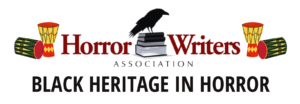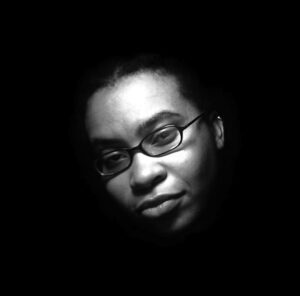Black Heritage in Horror: Interview with Tenea D. Johnson


Tenea D. Johnson is a multimedia storyteller, musician, editor, arts & empowerment entrepreneur, and award-winning author of 7 speculative fiction works, including 2021’s releases, Frequencies, a Fiction Album and Broken Fevers, of which Publisher’s Weekly wrote “the 14 hard-hitting, memorable short stories and prose vignettes in this powerhouse collection … are astounding in their originality” (starred review). Her debut novel Smoketown won the Parallax Award for excellence in a speculative fiction work by a person of color while R/evolution earned an honorable mention that year as well.
What inspired you to start writing?
I don’t know that I was ever inspired—just compelled. It would have been unnatural not to write and whenever possible I follow my nature.
What was it about the horror genre that drew you to it?
As in all of writing, the possibilities. Sometimes what stories explore makes some uncomfortable and sometimes that productive discomfort is the point, but at others it’s just that the reality being presented is inherently unpleasant. I think of my work as more psychological or thrilling. I grew up watching a good bit of supernatural horror and probably watch and read more varied horror today. For me it’s the unflinching and unexpected work that stays with me. That’s also what I try to create.
Do you make a conscious effort to include African diaspora characters and themes in your writing and if so, what do you want to portray?
The only stories I’ve written without African diaspora characters were set on alien worlds—and even then it’s possible they were just from a more far-flung diaspora. I populate my worlds with the people I see, and that’s everyone. I don’t trust homogeneous worlds. I feel like a story better be a damn good reason for one. Somewhat similarly, I tend to think of my themes as universal—even if they, say, happen to involve Transatlantic slavery.
Always I seek to portray the truth. I was recently commissioned to do a story about the Spiral Collective, a group of Black visual artists in the Civil Rights era and the pamphlet from their only show stated that “if possible, in these times, we hoped with our art to justify life.” That quote stuck with me because those who’ve come before me have allowed this truth: I hope to never have to do that. They’ve granted me the privilege of saying I don’t think I ever have.
What has writing horror taught you about the world and yourself?
You know, I didn’t tend to think of a lot of it has horror going in, but certainly see how the label fits. I believe that we get through things, not over them. Sometimes the way through involves terror and tribulation—also that hope can be a twisted thing and at times you find flecks of it in the most unexpected places.
How have you seen the horror genre change over the years? And how do you think it will continue to evolve?
The publishing industry for horror is paying more attention to different voices and some different stories. I hope it will continue to evolve; if not, it will die whether it knows it or not.
How do you feel the Black community has been represented thus far in the genre and what hopes do you have for representation in the genre going forward?
I don’t think I’ve read a story about the Black community in the genre that was written by someone outside of it (conscious decision) so I can’t speak on that. The stories I have read range far and wide and, overall, I’ve been pleased with what I found. I hope that we see more and more stories from the entirety of the diaspora.
Who are some of your favorite Black characters in horror?
Though not classically thought of as horror, I find Beloved to be a work of speculative fiction and the eponymous center of that novel an incredible character.
Who are some African diaspora horror authors you recommend our audience check out?
I’m a sucker for anthologies so I’d recommend people check those out to discover the depth and breadth of work. Start with Sycorax’s Daughters. I’m in it but that’s not why.
What is one piece of advice you would give horror authors today?
Be original. There are tropes and then there are repetitions. If so inclined, present the former, not the latter.
And to the Black writers out there who are just getting started, what advice would you give them?
Stay true to your voice; honor it by working on your craft to articulate yourself exactly as you’d like and be very clear on what success means to you and how best to achieve it.



